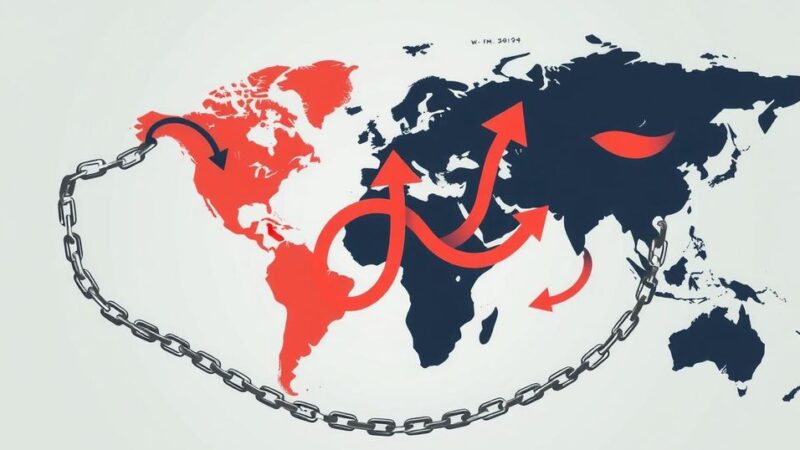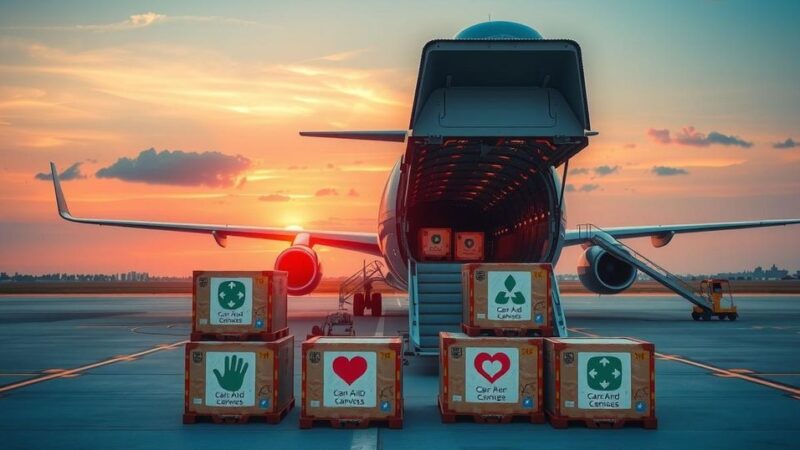The conflict between Israel and Hezbollah in Lebanon is causing severe human suffering, particularly among the young. Casualties are rapidly increasing, with at least 2,300 deaths reported in Lebanon and around 99,000 injuries in Gaza since the violence escalated following the Hamas attack on Israel. Hospitals, such as Rayak Hospital in the Bekaa Valley, are overwhelmed with young patients who are enduring extreme trauma and injuries, illustrating the deep psychological and physical scars that this war inflicts.
The ongoing conflict between Israel and Hezbollah in Lebanon has had a devastating impact on the lives of young individuals as violence escalates throughout the Middle East. Over the recent weekend, the war continued to claim lives across the Israel-Lebanon border, with health officials in Gaza reporting casualties of nearly 42,300 people and injuries totaling approximately 99,000 following the attacks initiated on October 7, 2023, by Hamas against Israel. In response to sustained aggression from Hezbollah, the Israeli military has focused its operations on the northern front, intensifying measures against Iran-aligned factions, a shift that commenced roughly a month ago. Since then, Lebanese reports indicate that upwards of 2,300 individuals have been killed, with nearly 10,700 injured—tragedies that include 51 fatalities reported just on Sunday. Israeli forces have strategically targeted Hezbollah’s strongholds, especially in the southern suburbs of Beirut and across southern Lebanon, conducting major ground operations that pose significant risks to United Nations peacekeeping personnel. Airstrikes have also inflicted devastation on the eastern Bekaa Valley, frequently appearing without forewarning. A visit to the Rayak Hospital in the Bekaa Valley revealed the harsh realities faced by the youngest victims of this escalating conflict. Among those is 16-year-old Ali Jaddouh, who has suffered critical injuries, including a severely damaged kidney and loss of his right leg due to an Israeli airstrike near his home in Shmustar. He expressed his emotional turmoil in stating, “I wanted to run and help my mother, but I saw my leg was cut. I lost consciousness and I don’t recall what happened next.” In the hospital, Ali learned of the severe injuries sustained by his family, citing further distress and confusion amidst his suffering. In the context of the military campaign, Israel asserts that its operations target Hezbollah, a group labeled as a terrorist organization by both the United States and Israel, responsible for thousands of rocket attacks towards Israel since early October 2023. Staff at Rayak Hospital have reported a surge in civilian casualties, and the director indicated that in the preceding two weeks, all patients treated had been non-combatants. The air strikes have frequently coincided with the hospital’s operations, heightening tension and fear among medical personnel and patients alike. Nurse Mountaha Mkahal articulated her emotional hardships as she works tirelessly, expressing, “It’s very hard to see a child suffering, and it reminds me of my own children.” The psychological toll on young patients is profound, as they grapple with the trauma of conflict that they did not instigate—and which they cannot cease. Ali poignantly reflected on his wishes for retribution, stating, “May God take revenge.”
The article examines the humanitarian crisis unfolding in Lebanon due to the ongoing military conflict between Israel and Hezbollah, particularly as the violence intersects with the broader regional turmoil exacerbated by events in Gaza. The conflict has resulted in significant casualties on both sides, particularly affecting the civilian population, with a focus on the traumatic experiences of young victims. The actions of the Israeli military and the consequences faced by civilians—including children—serve as the central focus of this meticulous report.
In summary, the conflict between Israel and Hezbollah is producing profound suffering among young children and families caught in the crossfire of a war that continues to escalate. The staggering statistics of casualties on both sides illustrate the urgent humanitarian need for intervention. The emotional scars inflicted on the youth, as evidenced by the experiences of those like Ali Jaddouh, highlight the tragic consequences of political strife and military aggression. As communities grapple with the aftermath, the need for compassion and support for affected individuals remains critical.
Original Source: www.cbsnews.com







